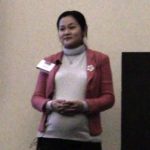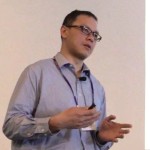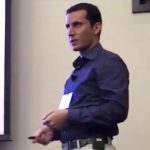There are fresh episodes of Radio Free HPC out in the wild and, in case you missed them, here’s what’s new: ColdQuanta Serves Up Some Bose-Einstein Condensate May 7, 2020 The show starts with Dan, Jessi and Shahin in attendance. Henry is traveling from his old home base in Minnesota to his new command bunker […]
Stanford HPC Conference Posts Preliminary Agenda
The Stanford HPC Conference has posted it Preliminary Agenda. The two-day event takes place Feb. 20-21 at Stanford University in California. “Join the Stanford High Performance Computing Center, HPC Advisory Council, its members and experts from all over the world for two days of invited and contributed talks and immersive tutorials on topics of great societal impact and responsibility! February’s open forum brings industry luminaries and leading subject matter experts together to examine emerging and major domains and share in-depth insights on AI, Data Sciences, HPC, Machine Learning and more.”
Using HPC in a Cohort Study of the Health Effects of Handgun Ownership in California
In this video from the 2017 HPC Advisory Council Stanford Conference, Yifan Zhang from Stanford presents: Using HPC in a Cohort Study of the Health Effects of Handgun Ownership in California. Researchers hope the study will identify characteristics of individuals at highest risk of experiencing firearm-related mortality.
Application Profiling at the HPCAC High Performance Center
“To achieve good scalability performance on the HPC scientific applications typically involves good understanding of the workload though performing profile analysis, and comparing behaviors of using different hardware which pinpoint bottlenecks in different areas of the HPC cluster. In this session, a selection of HPC applications will be shown to demonstrate various methods of profiling and analysis to determine the bottleneck, and the effectiveness of the tuning to improve on the application performance from tests conducted at the HPC Advisory Council High Performance Center.”
Beyond the Moore’s Law Cliff: The Next 1000X
In this video from the 2017 HPC Advisory Council Stanford Conference, Subhasish Mitra from Stanford presents: Beyond the Moore’s Law Cliff: The Next 1000X. Professor Subhasish Mitra directs the Robust Systems Group in the Department of Electrical Engineering and the Department of Computer Science of Stanford University, where he is the Chambers Faculty Scholar of Engineering. Prior to joining Stanford, he was a Principal Engineer at Intel Corporation. He received Ph.D. in Electrical Engineering from Stanford University.
Video: Multi-Physics Methods, Modeling, Simulation & Analysis
“Through multiscale simulation of the circulatory system, it is now possible to model this surgery and optimize it using the state of the art optimization techniques. In-silico analysis has allowed us to test new surgical design without posing any risk to patient’s life. I will show the outcome of this study, which is a novel surgical option that may revolutionize current clinical practice.”
Video: Containerizing Distributed Pipes
Hagen Toennies from Gaikai Inc. presented these Best Practices at the 2017 HPC Advisory Council Stanford Conference. “In this talk we will present how we enable distributed, Unix style programming using Docker and Apache Kafka. We will show how we can take the famous Unix Pipe Pattern and apply it to a Distributed Computing System.”
Tutorial on In-Network Computing: SHARP Technology for MPI Offloads
“Increased system size and a greater reliance on utilizing system parallelism to achieve computational needs, requires innovative system architectures to meet the simulation challenges. As a step towards a new network class of co-processors intelligent network devices, which manipulate data traversing the data-center network, SHARP technology designed to offload collective operation processing to the network. This tutorial will provide an overview of SHARP technology, integration with MPI, SHARP software components and live example of running MPI collectives.”
Addison Snell Presents: HPC Computing Trends
Addison Snell presented this deck at the Stanford HPC Conference. “Intersect360 Research returns with an annual deep dive into the trends, technologies and usage models that will be propelling the HPC community through 2017 and beyond. Emerging areas of focus and opportunities to expand will be explored along with insightful observations needed to support measurably positive decision making within your operations.”
Video: The Era of Self-Tuning Servers
“Servers today have hundreds of knobs that can be tuned for performance and energy efficiency. While some of these knobs can have a dramatic effect on these metrics, manually tuning them is a tedious task. It is very labor intensive, it requires a lot of expertise, and the tuned settings are only relevant for the hardware and software that were used in the tuning process. In addition to that, manual tuning can’t take advantage of application phases that may each require different settings. In this presentation, we will talk about the concept of dynamic tuning and its advantages. We will also demo how to improve performance using manual tuning as well as dynamic tuning using DatArcs Optimizer.”













